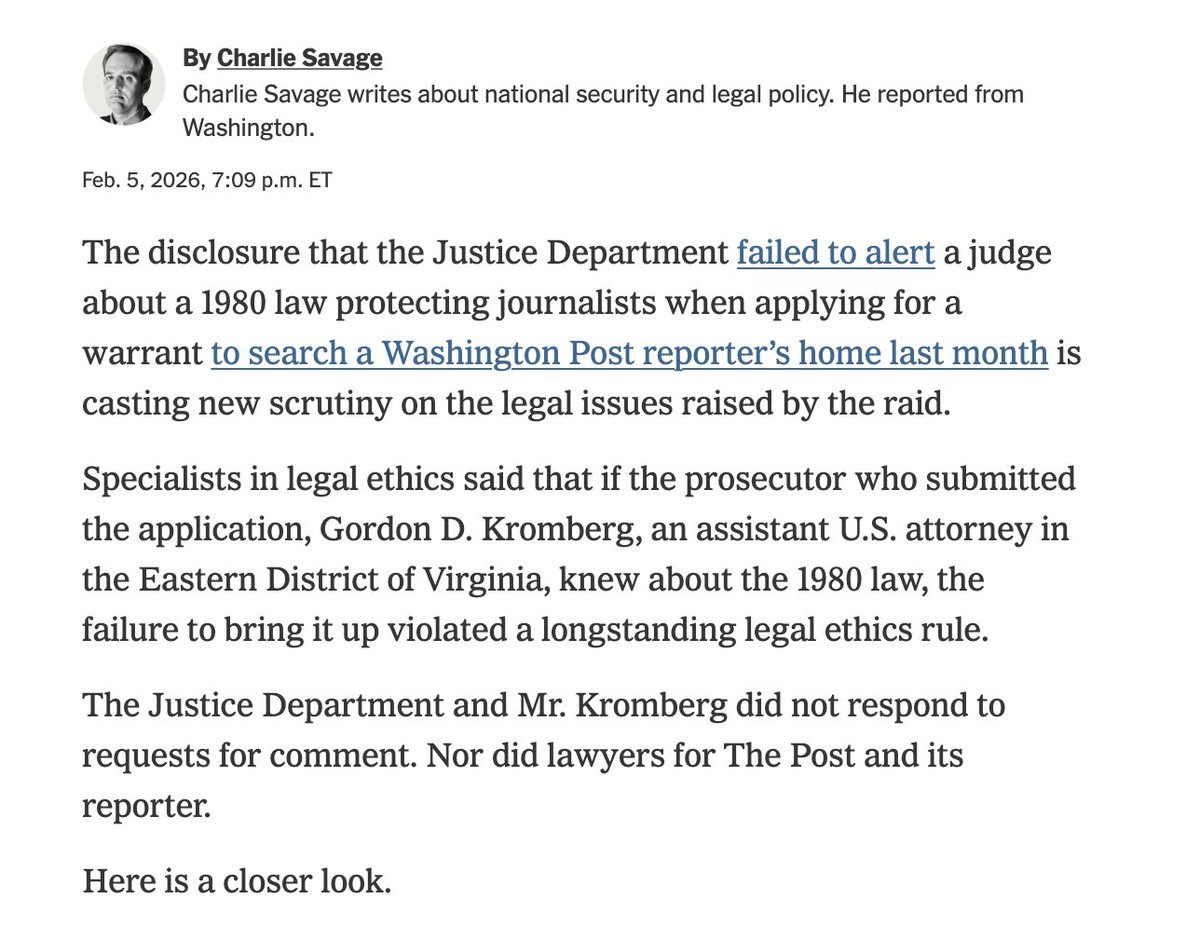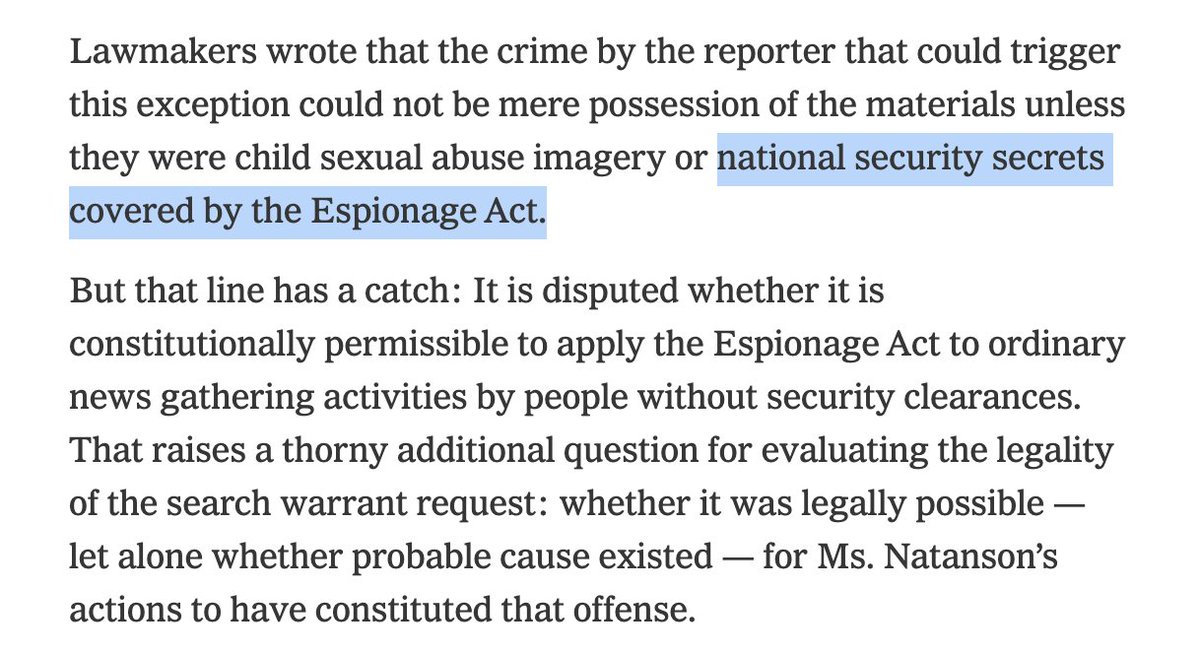Major 4th Amendment ruling from the en banc CA4: The specifics of Baltimore's aerial surveillance program -- how much it showed, and how long data was retained -- collected enough information that it is a 4A search and unconstitutional. #N
s3.documentcloud.org/documents/2097…

s3.documentcloud.org/documents/2097…


This is a strong endorsement of the mosaic theory, with the court accepting that "short term" surveillance is fine but that "long term" is not. If the judges feel the surveillance is revealing a lot of information about people, a line is crossed and the Constitution is violated.
They base their conclusion in part on an article that the plaintiffs submitted showing that if you have a view data points about where someone's phone goes, you can probably figure out who they are. (Yes, most people are at home at night.) 



I explained the problem with relying on studies like this here, BTW. washingtonpost.com/news/volokh-co…
The court is also influenced by the ability to combine this information with other information. (Which I would think is true of all information-gathering, but so it goes.) 

When combined with other databases and the tool of deductive reasoning, enough information can be obtained about people that the whole of their movements is revealed. 

As I understand the court's reasoning, the ability to tie in other databases and apply deductive reasoning to the data triggers the United States Constitution, crossing from constitutional "short term" surveillance to unconstitutional "long term" surveillance. 

To be clear, the court does not identify any one person who was "searched" by the program. Rather, I take it that the use of the program (with other databases. and human deductive powers) is a search of whoever it may learn movements of, which it is presumed to do.
I am kind of amazed that this sort of reasoning is in the name of the 4th Amendment, as it seems so far removed from the kind of analytical steps that you normally consider. But I guess every day is a new day in the world of the mosaic theory.
• • •
Missing some Tweet in this thread? You can try to
force a refresh





















